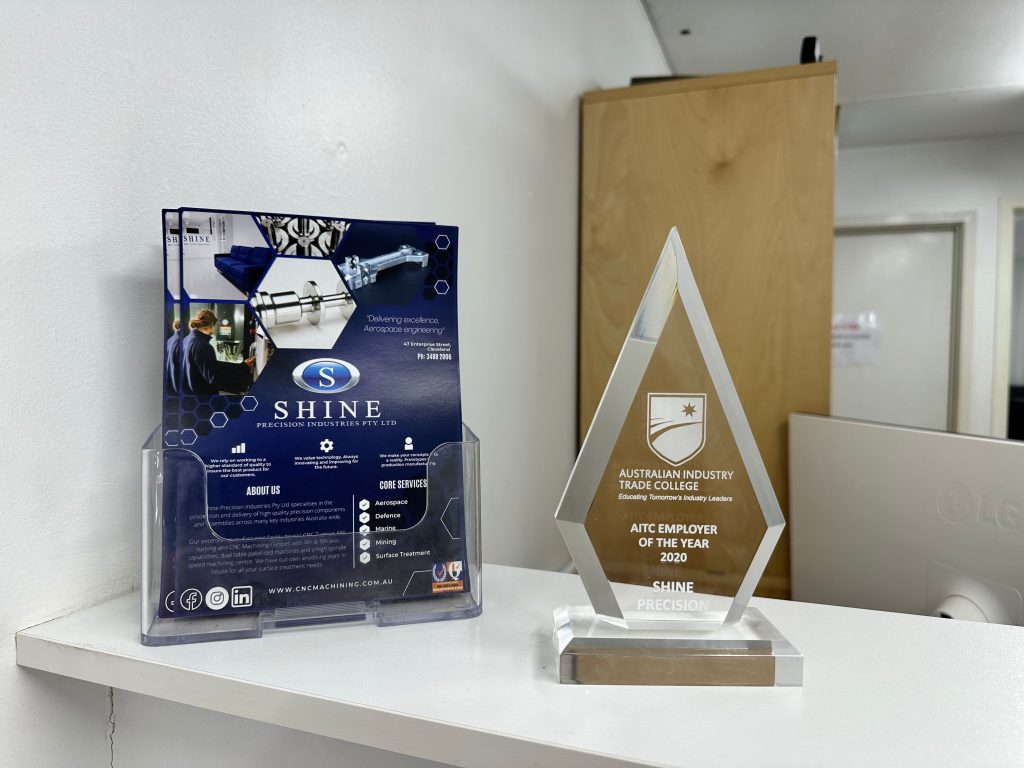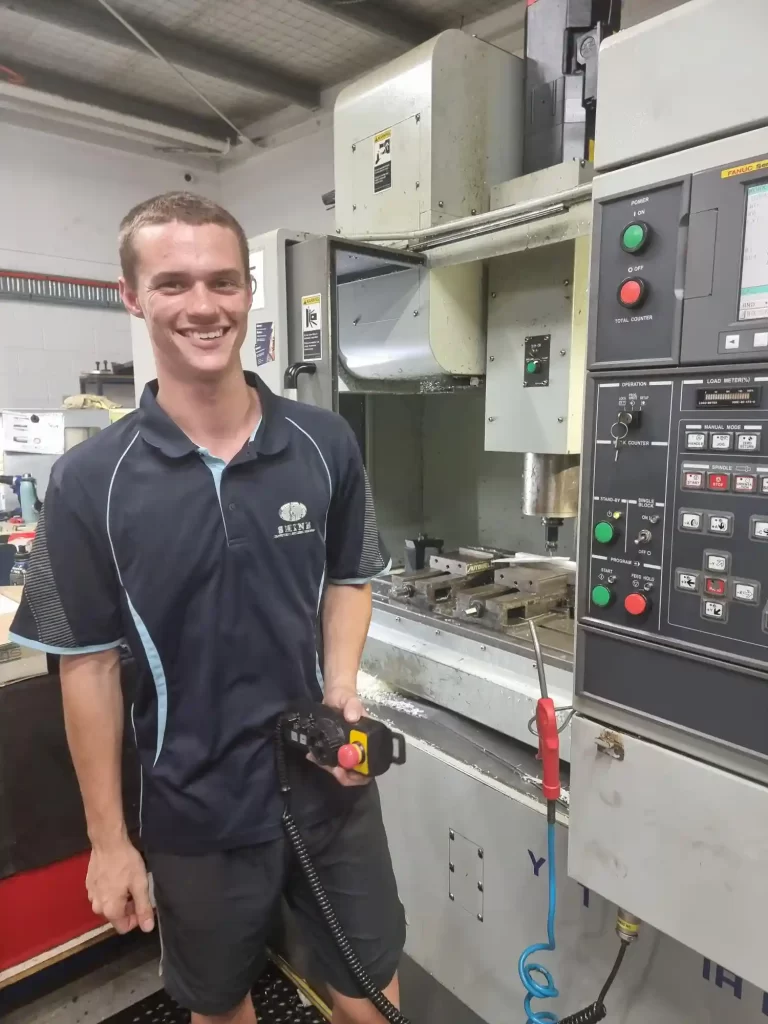Apprenticeships at Shine Precision Industries
We are always searching for enthusiastic and ambitious apprentices to join our team
Currently, Shine offers a 4-year apprenticeship resulting in a MEM30205 Certificate III in Engineering – Mechanical Trade (Machining).
We offer:
- Full time positions
- Interesting Work
- Immediate Start
- Great pay rates
- Fantastic working culture
Our Fitters are responsible for fabricating, commissioning, maintaining and repairing various equipment and machinery used in our manufacturing processes. They also operate equipment such as lathes, mills, drilling equipment, CNC machinery and welding equipment.
To be successful in this apprenticeship, you will need to have:
- Completed year 10
- Strong mathematical and problem-solving skills
- Attention to detail quality and safety
- Strong written and oral communication skills
- Strong computer literacy skills
- Reliable transportation to our plant in Cleveland, QLD
Becoming an Apprentice with Shine Precision enables you to gain invaluable experience whilst getting paid to gain a national qualification. This is a hands-on apprenticeship; learning starts from day one. If you are dedicated, hard-working and after long term career opportunities then we would love to hear from you.

FAQ
CNC machinists set up and operate a variety of machine tools to produce precision parts and instruments used in engineering and manufacturing. They use computer numerically controlled (CNC) machine tools to cut, drill and finish components.
As a CNC machinist, you would:
- translating blueprints into computer instructions for the tasks
- plan the most efficient order of machine operations for the job
- setting up CNC machines so that they can perform various tasks
- preparing raw materials before a machine processes them
- testing the machinery to check that it is running as expected
- align, secure, and adjust cutting tools and workpieces
- set and monitor the feed and speed of machines
- turn, mill, shape, and grind machine parts to specifications
- check completed parts against required quality and technical standards.
- isolating any issues
- finding solutions to issues
- monitoring machinery as it creates the desired final product
- checking the finished product to ensure it looks and operates accordingly
- maintaining the CNC machinery
- staying updated with relevant safety procedures and ensuring that the workplace is compliant
- training and managing junior CNC machinists
Machinists can learn to operate a variety of CNC machine tools that can produce many components to the same standard and specification, such as lathes, grinding machines, milling machines, drills and presses.
Occupational growth for a CNC Machinist is stable and projected to stay the same for the next five years.
According to the Job Outlook website, there will be an approximately 113,800 CNC Machinist by 2023 and estimated 17,000 job openings for the next 5 years (or 3,400 vacancies per year).
The most experienced CNC machinists can earn over $100,000 per year.
To become a CNC machinist, you usually need to gain an apprenticeship in an engineering trade and complete the relevant VET qualifications. Employers usually require junior secondary school certificate or equivalent.
You would receive on-the-job training once you start work. This would include learning how to operate various machines, including health and safety procedures
Overall employment of CNC machinists is projected to grow faster than the average for all occupations.
Machinists will be required to set up, monitor, and maintain these automated systems. As manufacturers invest in new equipment, modify production techniques, and implement product design changes more rapidly, they will continue to rely heavily on experienced machinists.
The projected growth may be offset somewhat by the closure of major manufacturing industries in Australia, such as automotive vehicle manufacturing
Trained CNC machinists have several alternative career paths to choose from. Some of the most lucrative employment opportunities can be found in the field of industrial machinery mechanics. They may also become metal or plastic machine workers, or take up employment as cutters, welders, braziers or solderers. This work is usually less technically demanding than CNC machining, as they don’t involve the use of CNC machinery.
Those looking to enter the field of industrial machinery mechanics and machinery maintenance will need to have extensive knowledge of cutting equipment in order to gain proficiency at repair and maintenance work.


